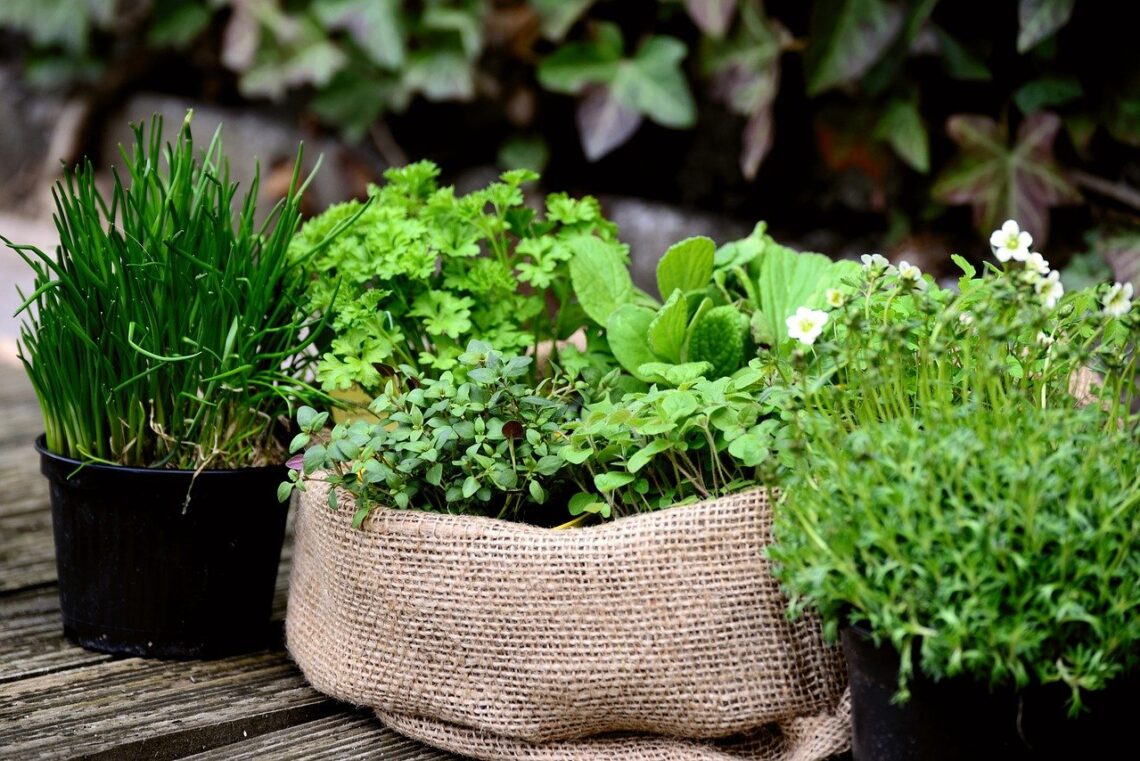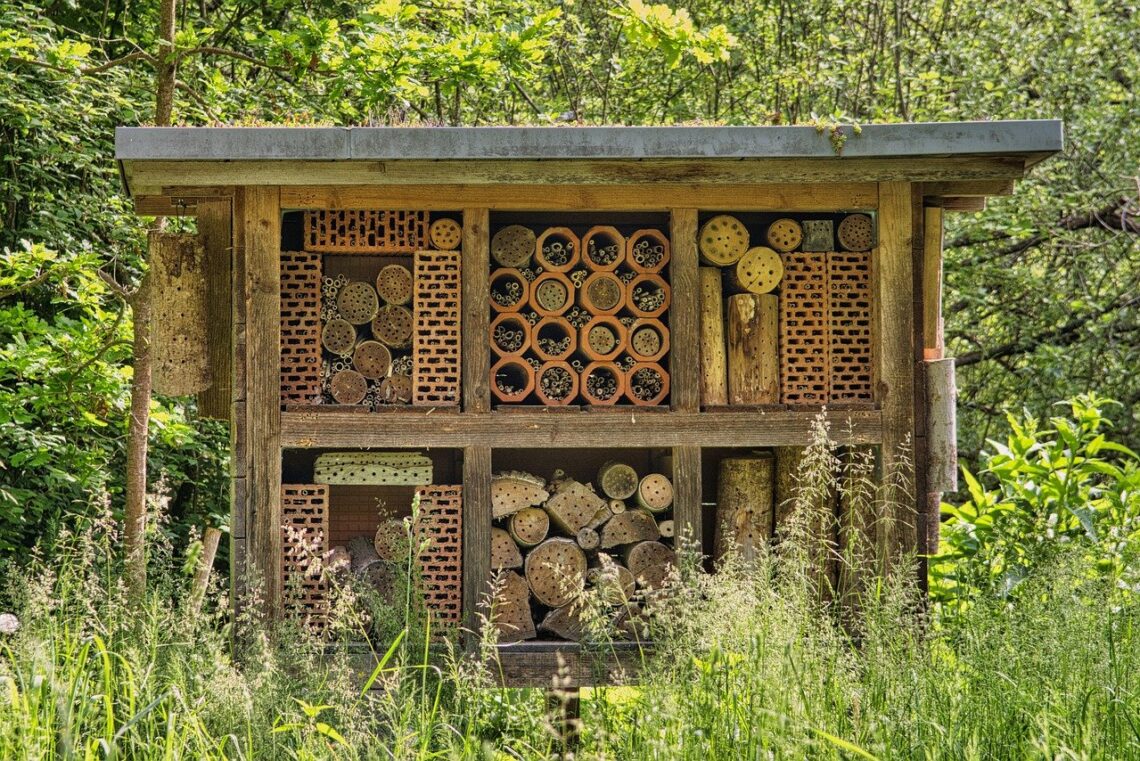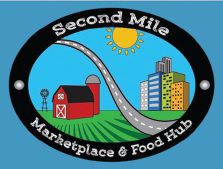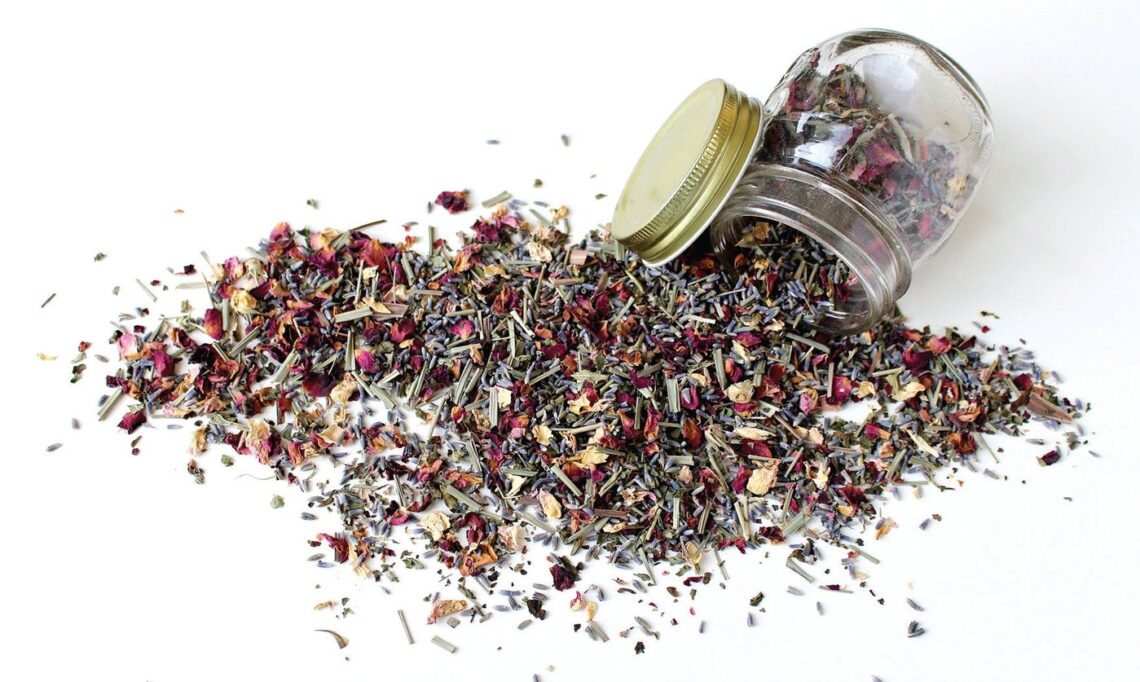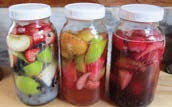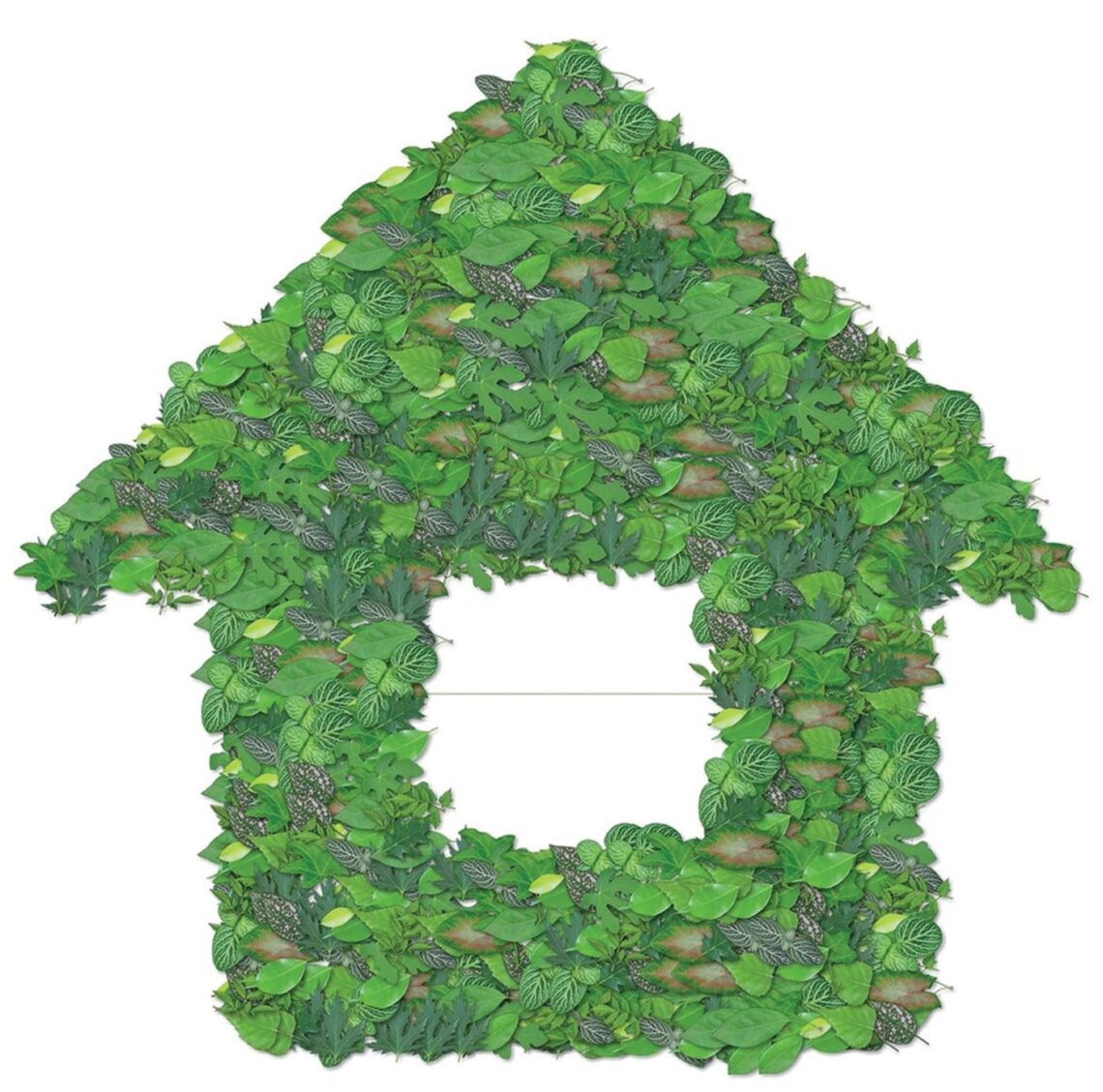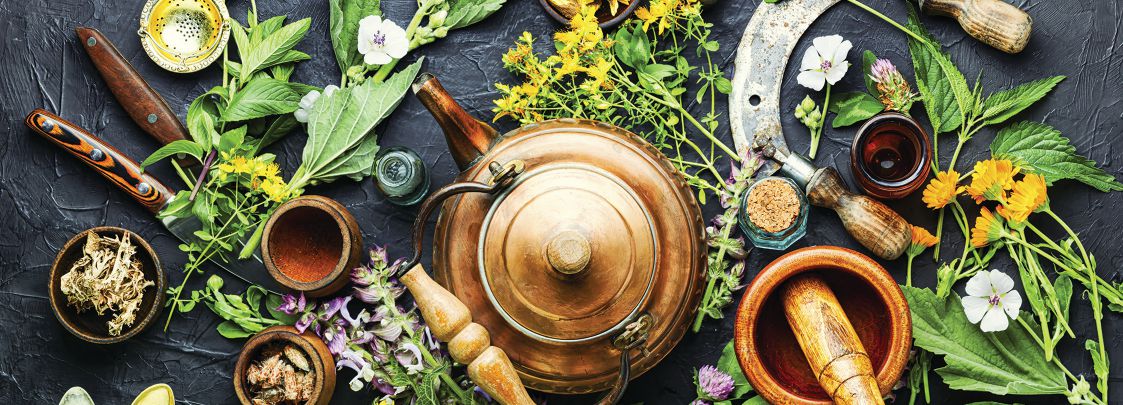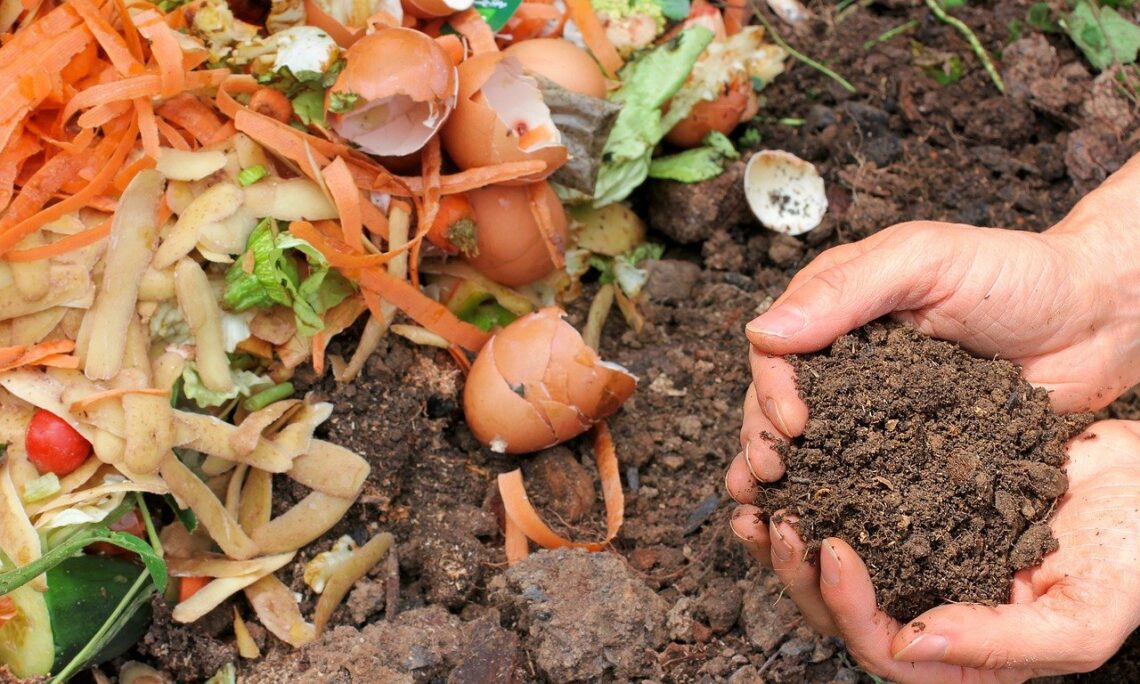Early spring is the time to plan for all kinds of gardening. Whether starting from scratch or adding to what you already have, be sure to include some herbs in your planning. Herbs come in a variety of sizes and colors, perennials and annuals, but are relatively easy to grow and maintain. So, as you choose your herbs for planting, keep the following ideas in mind. Four Common Growing Basics 1) Lots of Sun Because of their Mediterranean heritage, herbs do best in full sun. Five to six hours of sun is most suitable. A few herbs like mints will do fine in partial shade. The summer annuals – basils,…
-
-
Bugs in the Garden
Bugs, butterflies, and beetles – in our gardens and on our plants. Sometimes we are happy to see them, and often we are not. In either case, insects are necessary for our plants and consequently for us to survive. Some of them flit about pollinating, while others spend time eating and decomposing garden debris. Even the ones we dislike can be food for other beneficial insects, birds, and garden reptiles. Unfortunately, insects are generally in trouble, with almost 40% of insect species at risk of becoming extinct. So what can we do to help save and protect the insect ecosystem? One of the first and easiest projects we can undertake…
-
Mountain Rose Herbs Opens Two Aroma Bars
Mountain Rose Herbs announces the opening of two new Mountain Rose Aroma Bars designed to engage the senses through high-quality, ethically sourced essential oils and personal aromatherapy products. “The Aroma Bar is a celebration. We are reinvigorating retail in a post-COVID world,” said Mountain Rose Herbs owner and CEO Shawn Donnille. “As far as we know, a boutique aromatherapy marketplace like the Aroma Bar that carries all-natural, ethically sourced botanical oils doesn’t exist anywhere else in the United States.” Renowned as one of the nation’s largest organic bulk herbs distributors, Mountain Rose Herbs brings more than three decades of expertise in sourcing the finest quality organic, sustainable botanicals and oils.…
-
Second Mile Marketplace & Food Hub
Food Hub Plant sale Saturday, April 23, 10am to 2pm 11819 NE Hwy 99, Vancouver, WA Local farms offer starts of veggies, berries, perennials. Reasonable prices, variety, sustainably grown, and supporting local farms! Hot coffee, hot cocoa, and treats made in the Second Mile kitchen For more info: secondmilemarketplace.com The Marketplace is a well-equipped, licensed commercial kitchen offering kitchen rental, storage, meeting space, and business development assistance. Our mission is to help creative food entrepreneurs launch, grow and thrive in their food businesses. The Food Hub is an online shopping platform where you can find the freshest and most unique food products from around Southwest Washington. Pick and choose from a variety of products that…
-
Dirt Hugger Opens Landscape Yard
749 Snipes St, The Dalles, OR Mon -Fri 8am – 4pm 541-946-3478 Dirt Hugger, located in The Dallesport, WA, has produced organic compost since 2010 using locally available feedstocks such as fruit, wood, and beer yeast. They use their organic compost as the base in many soils and potting mixes. Each soil product is available in bulk, bags, or totes. They also offer rock, gravel, and a full line of landscape barks. Custom blends are also available. Their products are also available at retail outlets in The Dalles, Hood River, Bingen. Goldendale, Portland, Vancouver, and Boring For more info: www.dirthugger.com
-
Resolve to Use Herbal Alternatives
The world seems full of all sorts of chemicals these days. Big industry, agriculture, maintenance companies, and even the everyday family, use a variety of chemicals, many of which are irritating, bad-smelling, and even toxic. So what to do?!?! Let’s consider some herbal alternatives that are more natural, not too difficult to make or obtain, and certainly less toxic than many products on store shelves. In the garden: Many herbs are great companions to other plants, helping us use less or no pesticides. We have discovered that yarrow (Achillea millefolium) planted next to our roses can discourage aphids. Calendula (Calendula officinalis) – this sunny fragrant flower also known as pot…
-
How To Make Fruit Kvass with Probiotic Benefits
Fruit kvass is a fermented drink that is quick and easy to make, loaded with digestive enzymes and probiotics, and inexpensive to create. For tens of thousands of years, our ancestors ate real meats, fruits, vegetables, nuts, grains, fats, oils, fish, and fermented foods. As fermentation was their only method of preserving fresh foods for future ingestion, these particular items were probably eaten daily. Our gut biome depended upon them. Fermented foods not only give us enzymes that will help us to digest our meals and probiotics to keep us well, but they make the vitamins and minerals in these foods easier for our bodies to assimilate. Even though we…
-
Herbs For A Healthy Home
Strew the herbs; Stir the stew. Family to the hearth; Home is safe and sound. Keep your home safe and clean with these inexpensive and easy-to-make alternatives to store-bought cleaning solutions. The season for staying indoors is coming and that means stale air, insect pests coming inside, and germs flying about. Long ago, herbs were spread, strewn about the castle to sweeten the air, freshen living spaces, and ward off pests. An added bonus was that many herbs also protected family members and guests from bacteria and viruses. Herbs, such as sweet woodruff, catnip, spearmint, and conifer needles were strewn on the floors, hung as swags in rooms, or placed…
-
Build an Herbal Community
In times past, herbalism was a communal practice, especially for women of any group. Traditionally, they were the keepers of the home, midwives, and family healers. Hence, community members came to them when it came to the health and vitality of their families and neighbors. Herbal knowledge was gathered, collected, and held together in circles, where there was support and encouragement to ensure the learning was maintained throughout generations. However, as those who practiced herbal healing were persecuted and separated from their herbal community, the knowledge became isolated. Those who held the knowledge were less apt to share it, so much was not passed on. In the past decade, there…
-
Do You Compost? And Why Not?
With every passing day, it becomes more clear that the planet is in serious danger if we don’t change our approach to protecting the environment. And while most of the onus of this change falls on national governments more so than individuals, there are still some things you can do. There are some major lifestyle changes that everyone should probably make if we are truly going to slow things down. These are things like altering your approach to transport by cutting down on how much you fly, and using public transport instead of driving where possible. It would also be helpful if the entire world stopped eating animal-based products. Aside…

